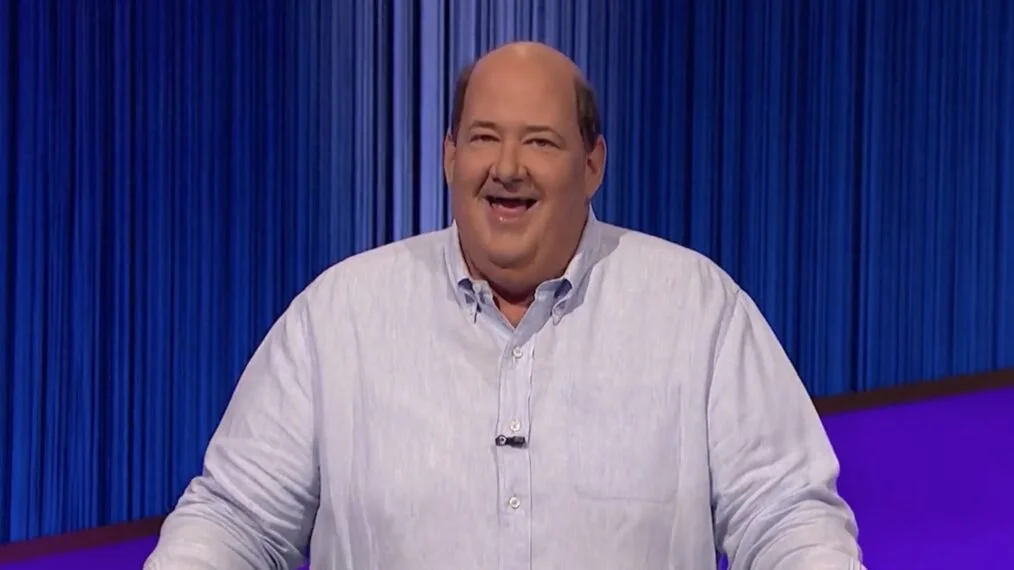Jeopardy Fans Blow a Fuse as James Earl Jones Mystery Stuns Viewers and Contestants

First, a quick setup: on a recent edition of Jeopardy!, Ryan Sharpe and Kelsi Tyler faced off against Paolo Pasco, a prior winner, as they barreled toward a clue steeped in Sesame Street lore. Midway through, Ken Jennings rolled out Oscar the Grouch from his trash can, as if to remind everyone that this show still values whimsy even as the mood on social media got distinctly less forgiving. The host, with that familiar calm, introduced a black-and-white photo of a younger James Earl Jones—the same Jones who would later lend his voice to Darth Vader and Mufasa, the kind of career that should be engraved on every classroom wall. The moment was simple: a notice of fame from across decades, a voice that shaped generations, and yet the buzzer beeped and the contestants failed to pull the name.
The shock is not merely that a bedroom couch of a game show missed a star; it’s the avalanche of comments that followed. Jeopardy’s Instagram post sparked a wildfire of disbelief: fans crying “THEE James Earl Jones?” while others sighed that the room had somehow misplaced a cultural pillar and replaced it with a generic sense of obscurity. The feedback wasn’t a few cranks on the internet; it was a chorus of fans who grew up with Jones in iconic roles and on the small screen in real time. The damning line in the replies felt almost ritual: you know an icon, you shouldn’t have to whisper his name twice, yet the public memory proved imperfect.
Of course, this isn’t Jones’s first brush with public memory tests. The 93-year-old legend lingered in the public consciousness through decades of star power and a voice that could fill a galaxy with menace or warmth. Yet even a lifetime of fame can become slippery when the clues are slyly framed around Sesame Street and a childhood favorite becomes a test of generic recall rather than recognition of a singular talent. The clip also serves as a reminder of the fickle nature of show business knowledge: it’s one thing to know the star, another to conjure a name in the pressure of a timed question.
There are broader implications here too. The Jeopardy moment sits on a shelf with other recent TV memory tests, like a contestant unexpectedly tied to a famous ancestor in a June episode, where a clue about Emily Folger revealed surprising genealogical ties and created a sensation online. In both cases, the internet’s thirst for a perfect recall moment collides with the imperfect reality of human memory under pressure. It’s a reminder that even a show built on trivia and decades of televised history can produce a glaring miss that spawns a fresh round of online debate: what do we expect of contestants when the question is a pop culture landmark that double as a historical artefact?
So as the credits roll and the social feeds flood with commentary, we are left with a pivot: while the show continues to cultivate big-name guests and nostalgic cameos, the audience’s memory remains mercurial, and a single misstep can become a defining moment in the current cultural chatter. The question now is what will happen next: will the next episode serve up an easier pin to drop, or will it cough up another moment of collective forgetfulness that forces us to question our own ability to recall the names behind the faces that defined entire genres? Brace yourselves. What will Jeopardy teach us about memory next week, and which legendary voice will be rendered unrecognizable by the clock?
Closing thought: if James Earl Jones can become a missed name on Jeopardy, maybe the real question is how we keep our own memories from slipping through the buzzer’s fingers. The inevitable cliffhanger invites us to tune in again and find out which icon’s name will surface when the pressure is on, and which of us will mutter under our breath, yet still click to watch. What comes after is anyone’s guess, but the drama certainly isn’t over.
Sources: Celebrity Storm and New York Post
Attribution: Creative Commons Licensed (GO)
Attribution: Creative Commons Licensed (GO)




